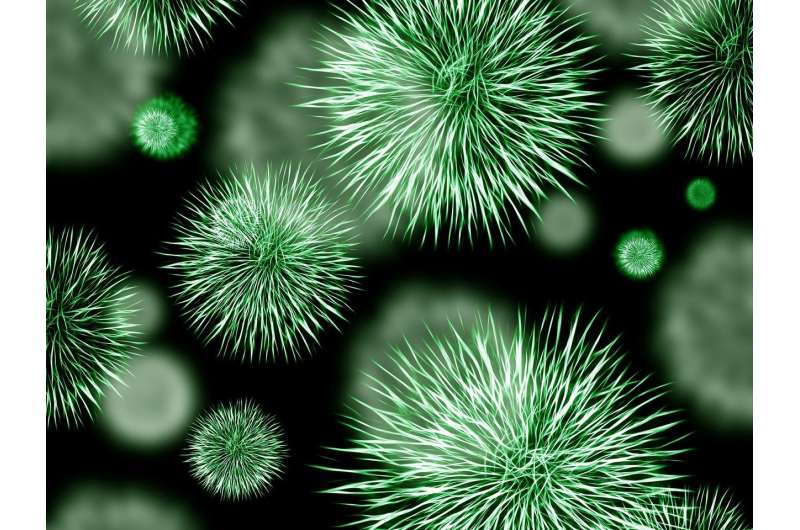Study discovers new delivery system that could help prevent bacterial infections

In a recent study in the Journal of The American Chemical Society, Professor Tewodros Asefa and Associate Professor Jeffrey Boyd synthesized nanostructured silica particles, considered to be promising drug carriers, that contained payloads of an antimicrobial agent. The researchers found that the particles were effective at killing two human bacterial pathogens.
"Interestingly, the particles were more effective at killing the bacteria than the antimicrobial was, which may highlight a more efficient mechanism for drug delivery," said Boyd, an Associate Professor in the Department of Biochemistry and Microbiology.
According to Boyd, bacteria are rapidly evolving and becoming resistant to antimicrobials—agents that kill or prevent the growth of microorganisms such as bacteria, viruses or fungi. The findings of this study could help them develop an antimicrobial therapy that would prevent bacterial infections or the growth of bacteria in unwanted locations.
This new mechanism allows compounds to slowly release antimicrobials into local environments, resulting in high amounts of the molecule in a specific location. This is a different scenario than when antibiotics are taken orally and they become widely distributed throughout the body.
"The new materials we have designed and built allow antibacterials to be more potent and have the ability to wipe out bacteria at smaller concentrations than the antibacterials can do on their own," said Asefa, a Professor in the Department of Chemistry and Chemical Biology and the Department of Chemical and Biochemical Engineering.
"This is because the newly designed nanomaterials allow the antibacterials to be localized, released slowly and attack the microorganism more effectively."
Rutgers researchers say the study could lead to the development of new microscopic particles containing drugs, anticeptics or pesticides that may increase the effectiveness of the therapy and aid in preventing antibacterial resistance. What they still need to determine is why these microscopic particles containing the antibacterial agents are more effective at destroying the bacteria than the antibacterial alone.
More information: Viktor Dubovoy et al, One-Pot Hydrothermal Synthesis of Benzalkonium-Templated Mesostructured Silica Antibacterial Agents, Journal of the American Chemical Society (2018). DOI: 10.1021/jacs.8b04843
Journal information: Journal of the American Chemical Society
Provided by Rutgers University




















